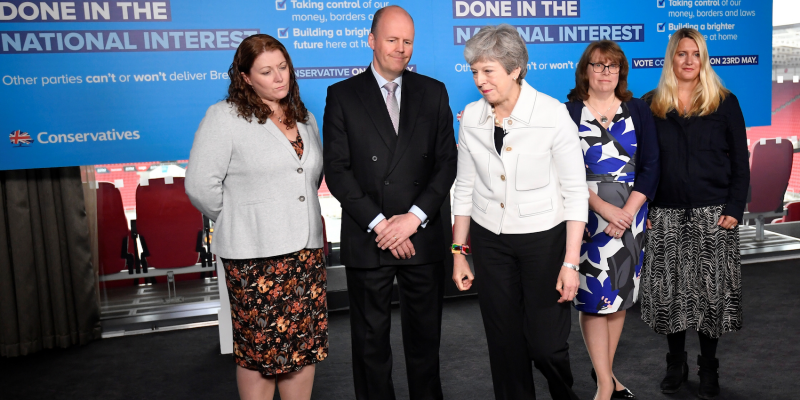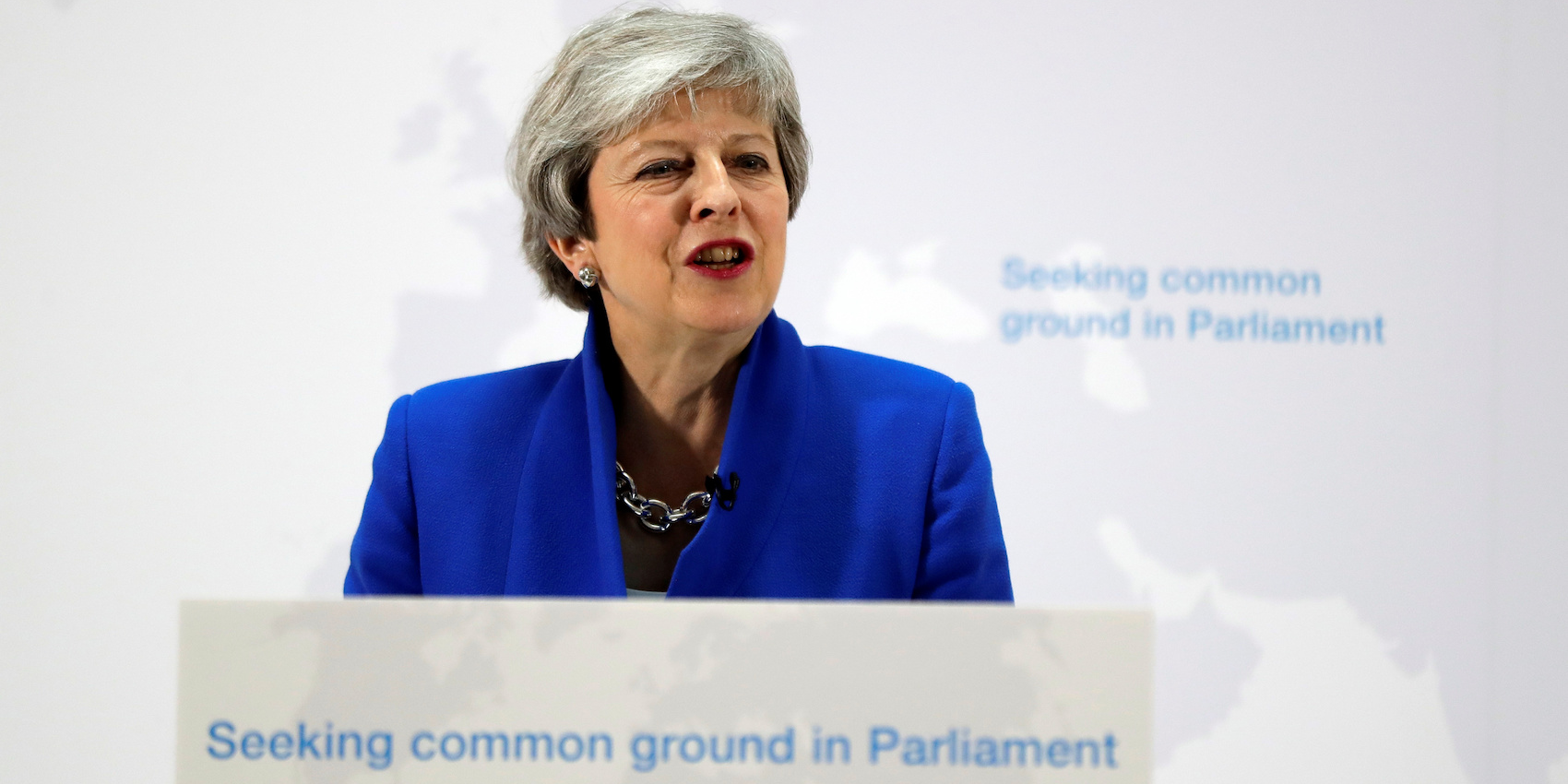- Theresa May has offered members of Parliament a binding vote on holding a second referendum whether to leave the European Union.
- The UK prime minister made the offer ahead of the latest vote on her Brexit bill.
- MPs would need to back her bill before holding any vote on a second referendum.
- Visit Business Insider’s home page for more stories.
LONDON – In a last-ditch bid to pass her Brexit deal, Theresa May has offered members of Parliament a legally binding vote on whether to hold a second referendum on Britain’s membership in the European Union.
In a speech in central London, the UK prime minister said her Withdrawal Agreement Bill – which MPs are due to vote on in June – would include a provision forcing MPs to hold a vote on whether to hold a second Brexit referendum.
“The government will include in the Withdrawal Agreement Bill at introduction the requirement to vote on whether to hold a second referendum,” she said.
“This must take place before the withdrawal agreement can be ratified.”
The offer means Parliament would need to approve the bill before voting on whether to hold a second referendum.
"If the House of Commons were to vote for a referendum, it would be requiring the government to make provisions for such a referendum - including legislation if it wanted to ratify the withdrawal agreement," May said. "So to those MPs who want a second referendum to confirm the deal: You need a deal and therefore a Withdrawal Agreement Bill to make it happen.
"So let it have its second reading and then make your case to Parliament. "
The prime minister said the bill was Parliament's "last chance" to leave the EU with a deal.
"If MPs vote against this deal, they are voting to stop Brexit," she said.
Following the speech, business groups urged Parliament to seize the opportunity to secure a compromise.
"Brexit has left the economy stranded in no man's land," said Carolyn Fairbairn, the director-general of the Confederation of British Industry.
"The prime minister's offer provides a way forward, but only MPs can take it. Businesses urge them finally to find the spirit of compromise that has eluded them so far. Jobs and livelihoods depend on it."
The offer, however, caused a furious reaction from some Conservative MPs.
"If Theresa May is now supporting a Second Referendum, it makes it very hard for me to support the latest WAB when it comes to the House of Commons," MP Robert Halfon tweeted.
"This is a betrayal of the 2016 referendum and a betrayal of everything she has been saying since she became Prime Minister."
Jacob Rees-Mogg, a Pro-Brexit MP who reluctantly backed May's deal at the most recent vote, tweeted that the new offer was "worse than before and would leave us bound deeply in to the EU."
"It is time to leave on WTO terms," he said.
May's speech also received a lukewarm reception from the Democratic Unionist Party, which props up May's minority government.
"We will examine the legislation closely when the bill is finally published, but the fundamental flaws of the draft Withdrawal Agreement treaty itself remain unchanged," the party's deputy leader, Nigel Dodds, said in a statement.
The Labour Party also rejected the offer.
"The prime minister's proposal tonight seems to be largely a rehash of the government's position in the cross-party talks that failed to reach a compromise last week," the Labour leader Jeremy Corbyn said in a statement.
He added: "We will of course look seriously at the details of the Withdrawal Agreement Bill when it is published. But we won't back a repackaged version of the same old deal - and it's clear that this weak and disintegrating government is unable deliver on its own commitments."
What has May offered MPs?

May's offer of a binding vote on holding a referendum is a sign of the difficulty May faces in passing her Brexit legislation.
After three consecutive House of Commons defeats on her Brexit deal, thanks to large numbers of her own party's MPs rejecting it, the prime minister felt she had little choice but to attempt to win over Labour MPs.
May's offer, however, may be less than it appears. MPs have rejected a referendum before, and this new vote, if it takes place, will be a whipped vote, meaning Conservative MPs will not be free to vote as they please.
And such a vote will happen only if Parliament backs the Brexit bill in its early stages. With many Conservative MPs and the Democratic Unionist Party committed to voting it down, this is unlikely to take place.
And even if it were to pass, Parliament would already have had the opportunity to amend the legislation to force a vote on a referendum in any case, regardless of what May promised Tuesday.
